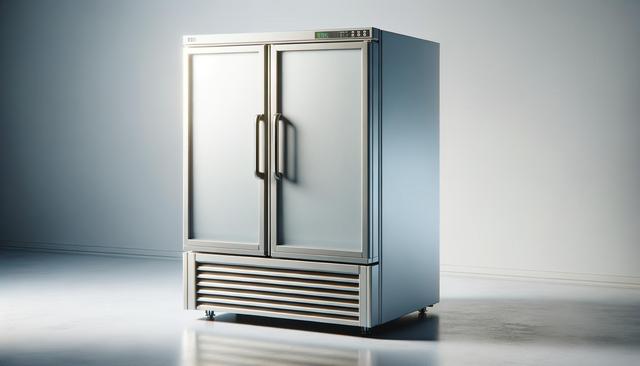Understanding the Key Differences Between Commercial and Home Refrigerators
At first glance, a refrigerator is just a refrigerator — it keeps food cold. However, commercial refrigerators are built with a different purpose in mind. Unlike home models, which are designed for intermittent use and moderate food storage, commercial refrigerators are engineered for durability, consistent performance, and higher volumes. These units maintain stable temperatures even when frequently opened and closed, which is critical in busy environments like restaurants, bakeries, and catering services. Home refrigerators, in contrast, may struggle with fluctuations in temperature when subjected to similar use, leading to frost build-up and compromised food safety.
Commercial refrigerators often feature more powerful compressors, stainless steel exteriors for easy cleaning, and more robust shelving systems. These features make them more reliable for storing large quantities of perishable goods. When evaluating the long-term value, it’s essential to consider not just the upfront cost but also how performance differences can affect food quality and energy consumption over time.
Energy Efficiency and Operational Cost Savings
One of the most compelling reasons to invest in a commercial refrigerator is the potential for long-term savings through energy efficiency. While they typically consume more power than residential models due to their size and power, many commercial refrigerators are designed with energy-saving technologies such as high-efficiency compressors, LED lighting, and improved insulation. These features help reduce electricity usage over the long haul.
Here’s how commercial refrigerators can contribute to operational cost savings:
- Temperature consistency reduces food spoilage and waste.
- Advanced insulation minimizes energy loss even with frequent door openings.
- Models with Energy Star certification can significantly lower utility bills.
When viewed over a 5 to 10-year period, the investment in an energy-efficient commercial unit can offset the initial purchase price, making it a financially sensible choice for businesses focused on sustainability and cost control.
Maintenance and Durability: A Long-Term Perspective
Commercial refrigerators are designed with longevity in mind. Their components are typically of higher quality and more accessible for repair or replacement. This means fewer breakdowns and lower maintenance costs over time. Many models offer modular parts, making it easier and more affordable to service specific sections without replacing the entire unit.
Durability also means the unit can withstand the rigors of daily use in demanding environments. In contrast, home refrigerators may show signs of wear and tear much earlier when used in commercial settings. Over time, these differences translate into fewer replacements and less downtime — both of which have significant financial implications for any food-focused business.
Some common features that add to the durability of commercial refrigerators include:
- Heavy-duty hinges and doors designed for frequent use.
- Corrosion-resistant materials that extend the appliance’s life.
- Improved airflow systems that enhance cooling efficiency and component longevity.
Food Safety and Compliance Benefits
Food safety regulations are stringent, especially in commercial settings. Commercial refrigerators are built to comply with health codes that often require consistent internal temperatures and easy-to-clean surfaces. These units are equipped with features that support food safety, such as digital temperature displays, alarms for temperature fluctuations, and NSF-certified components.
Using a commercial refrigerator can help businesses avoid costly fines or violations during health inspections. Additionally, by maintaining precise temperatures, these units reduce the risk of bacterial growth, ensuring that stored food remains safe for consumption. This not only protects customers but also helps preserve a business’s reputation.
Key compliance-related features include:
- Automatic defrost systems to prevent ice build-up.
- Sealed interiors that are easy to sanitize.
- Temperature monitoring systems with alert capabilities.
Is a Commercial Refrigerator Right for Your Business?
Choosing a commercial refrigerator may initially seem like a steep investment, but for businesses that rely on consistent, large-scale refrigeration, the benefits often outweigh the costs. From durability to energy efficiency, and from food safety to operational savings, these units are tailored for performance in demanding environments.
Before making a decision, consider the following:
- Volume of food storage and frequency of use.
- Energy efficiency ratings and potential utility savings.
- Compliance requirements for your industry or location.
- Available space and installation constraints.
While home refrigerators may suffice for low-volume operations or startups, those looking to scale their food service business or improve reliability should seriously consider the advantages of commercial refrigeration. The long-term math often adds up to significant savings and fewer headaches when maintenance, food safety, and operational efficiency are factored in.
Conclusion: A Practical Investment That Pays Off Over Time
For food service professionals, investing in a commercial refrigerator is about more than just cooling — it’s about reliability, compliance, and long-term financial prudence. While the upfront cost may be higher than residential models, the consistent temperature control, energy efficiency, and robust construction make it a worthwhile investment. When evaluating whether commercial refrigerators save money, the surprising answer is yes — especially when you consider reduced food waste, fewer repairs, and lower energy bills over the life of the appliance. For businesses aiming to optimize their kitchen operations, a commercial refrigerator can be a cornerstone of long-term success.






